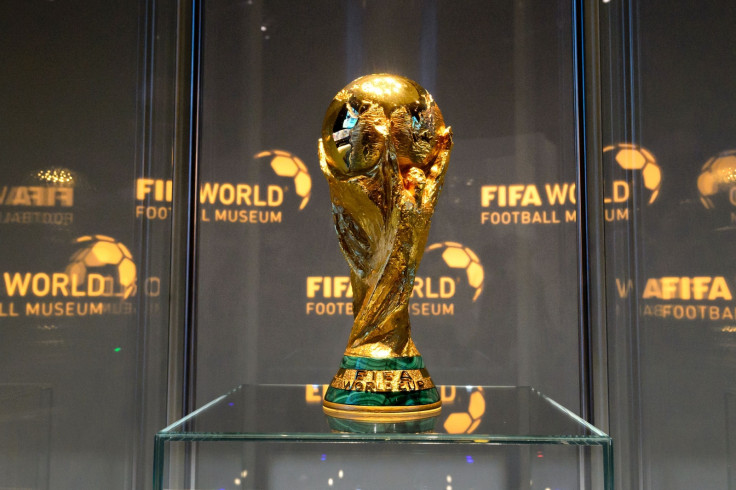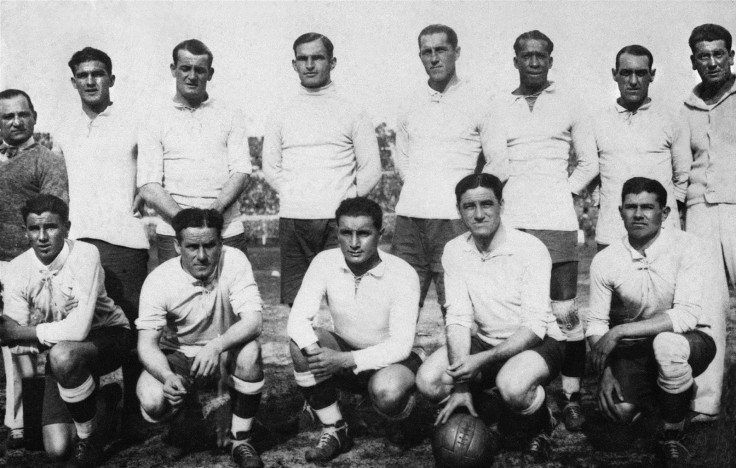World Cup expands to 48 teams - but how much has it changed since 1930?
Fifa are set to agree on enlarging the event from 2026, but how have the finals grown?

Gianni Infantino may have endured a stop-start start to his tenure as the new Fifa president, but he is set to buck the trend of his political counterparts by keeping one of his pre-election promises. On Tuesday (10 January) the Fifa council is set to agree to increase the number of teams participating at the World Cup from 32, the number it has sat at at since 1998, to 48.
The idea follows the expansion of the European Championships, which sent supporters into a bored stupor with a clutch of dull and meaningless matches, and proposals to add sides to the Champions League whose group phase is struggling to attract attention. With more national associations and some of the most powerful nations represented on the Fifa executive committee protected, Infantino's position as the head of world football will become more cemented than ever.
The first tournament to be affected with be the currently un-awarded event in 2026, which comes nearly a century on from the inaugural tournament in Uruguay in 1930; a showcase unrecognisable from the ugly gargoyle world sport's leading event has mutated into. But the number of teams, new-found technology and inflated wages are not the only differences between the two tournaments, as IBTimes UK explains...
World Cup 1930
The first World Cup finals were immediately plunged into disarray when Uruguay won the right to host the tournament, after a number of other nations withdrew from the process. Mercilessly, the event is the only World Cup that has not been preceded by a qualifying tournament, with countries who were members of Fifa invited to participate.
Uruguay's detachment from Europe meant until two months before the tournament no teams from the continent had accepted Fifa's invitation to compete. Such was the Uruguay Football Association's desire to diversify the line-up they invited England – not then a Fifa member – to travel, but eventually Belgium, France, Romania and Yugoslavia made the trip by boat to South America.

A 18-day tournament saw a match staged near-enough every day, with 13 teams competing – seven hailing from South America. There were three groups of three and one of four, with the side finishing top progressing to the knock-out stage. The city of Montevideo hosted all of the matches at its three stadia; the Estadio Centenario, Estadio Gran Parque Central and Estadio Pocitos.
Yugoslavia were the only European side to progress to the semi-finals after winning their two group matches. However they were beaten by eventual champions and hosts Uruguay, who overcame Argentina in the final. Guillermo Stabile finished as top scorer with eight, a tally that stood as the record haul in a single tournament for 24 years before being eclipsed by Hungary's Sandor Kocsis.
World Cup 2026
Fifa are yet to confirm the format for the expanded tournament, but early suspicions are that the 48 teams which will qualify from the six confederations will be divided into 16 groups of three. A round robin phase will follow, with the top two sides progressing to the first knock-out phase – the round of 32.

The greatest bone of contention, and what perhaps could force another delay to the decision over any expansion, is how the extra places will be distributed. Currently Europe is guaranteed 13 spots, Africa five, Asia four, North and Central America three and South America four, with the remainder of the places contested between the respective associations in play-off matches.
Uefa, the richest and most powerful confederation, are demanding at least three extra places in any 48-team tournament, which would assure at least one European nation will be in each group. The demands of other associations are not clear, but the Oceania Football Confederation [OFC] will likely demand at least one place – having only had a team compete in four of the previous 20 tournaments.
Alternative formats include reducing the expansion to just 40 and having either a preliminary play-off including the 16 lowest ranked nations, or eight groups of five teams. But both ideas would lead to extra matches and a longer tournament, which already seems bloated. Teams currently compete in a maximum of seven games. Meanwhile, draws in a 48-team event could be a thing of the past and replaced by penalty shoot-outs at the end of all matches.
© Copyright IBTimes 2025. All rights reserved.






















